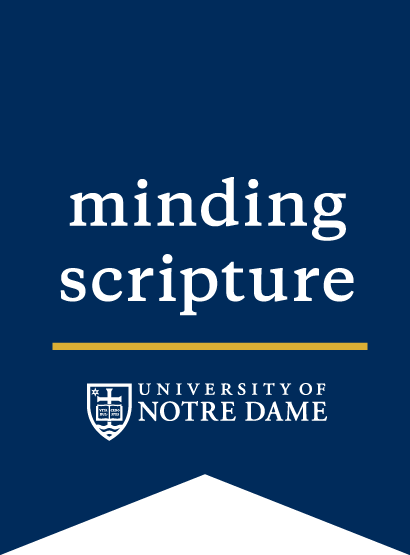Show Notes
Join our hosts Gabriel Reynolds, Mun’im Sirry, and Francesca Murphy to discuss the place and importance of ritual in the Bible and Qur’an. Both scriptures contain passages in which God teaches believers how to worship Him, seek forgiveness for sins, and advance spiritually. Common ritual practices include fasting on Yom Kippur, circumambulating the Ka’ba in prayer, and performing animal sacrifices. Is ritual integral to all three faiths? How are rituals preserved in the context of changing locations and practices throughout the centuries?
The rituals of Jewish tradition often center around the Temple of Jerusalem; there are three biblical Jewish pilgrim festivals in which rituals were carried out in the Temple. Does this sacred location bear import as a locus of God’s presence, or is it simply a gathering space? Murphy offers a historical perspective on how the Temple, and the sacrifices which were conducted therein, are entwined with the Jewish self-understanding and persist to this day, despite the destruction of the second temple.
Further, our hosts probe into the relationship between the Temple and the Church: while the Temple is the spiritual and cosmological center of Judaism, is there something similar within Christianity? The Temple was a place of sacrifice, especially the Passover sacrifice; it is this ritual which is taken up by Christianity in the sacrifice of the Eucharist, which can be understood as a transformation of the Passover ritual as Christ offers Himself for sacrifice as the unblemished Paschal Lamb. Murphy explains that the Eucharist becomes the center and heart of the Church, both spatially and spiritually, rather than a physical location. However, it would be misleading to characterize this sacrifice as a ritual; instead, it must be approached as a sacrament, a visible sign of the invisible, or spiritual activity of grace whereby the participant is made holy.
Is there a similar connection between ritual and sacred space in Islam? Sirry explores the question of whether the Ka’ba in Mecca, which is also mentioned in the Qur’an as the Bayt, or House of God, might have similar import and connotations. For the Muslims, the Ka’ba is one of the most sacred spaces on Earth; it is the locus of rituals of pilgrimage, or hajj, as well as group prayer. Further, Muslims throughout the world face the Ka’ba in their personal and collective daily worship.
How is prayer and ritual in the Qur’an and the Bible related to purity? Is there a sense of a need for personal purity to approach holy places or worship God? In 1 Cor 11:27, Paul says that there are concerns regarding the worthy consumption of the Eucharist: “Whoever, therefore, eats the bread or drinks the cup of the Lord in an unworthy manner will be guilty of profaning the body and blood of the Lord.” Murphy and Reynolds discuss how the Eucharist constitutes the Church’s corporal unity with Christ, and how worthy participation in the Eucharist is predicated upon union with the Church. In Islam as well, as Sirry explains, “purity, both physical and spiritual, is essential for prayer.” Islam surrounds worship with preparatory purification: for instance, ablutions, that is, ritual washings, are necessary before prayer and before entrance into a mosque.
Another practice, that of pilgrimage, is common to Islam, Judaism, and Christianity. How should this activity be approached? Pilgrimage, or hajj, is one of the five pillars of Islam. However, the word “pilgrimage” may be an insufficient English translation of hajj as it focuses primarily on the journey. In a hajj, the emphasis lies with ritual activities completed in a specific location, especially circumambulation and sacrifice. Do these rituals have a redemptive character? Do they lead to atonement or forgiveness of sins, as they do in the Christian tradition? For Christians, the physical journey is central to and definitive of the practice of pilgrimage; it serves as a crucial period of reflection, purification, and unification with the sufferings of Christ.
How should fasting be properly understood? What is the role of the priest or cleric in worship, ritual, and sacrament? Delve into these questions and many more in this episode on the practices which embody and characterize the three Abrahamic faiths.
Further Resources:
Pope John Paul II. Ecclesia dei Eucharistica. Vatican, 2003.
Tagliacozzo, Eric. The Hajj: Pilgrimage in Islam. Cambridge University Press, 2015.
IMAGE CREDIT: Pxhere Creative Commons
